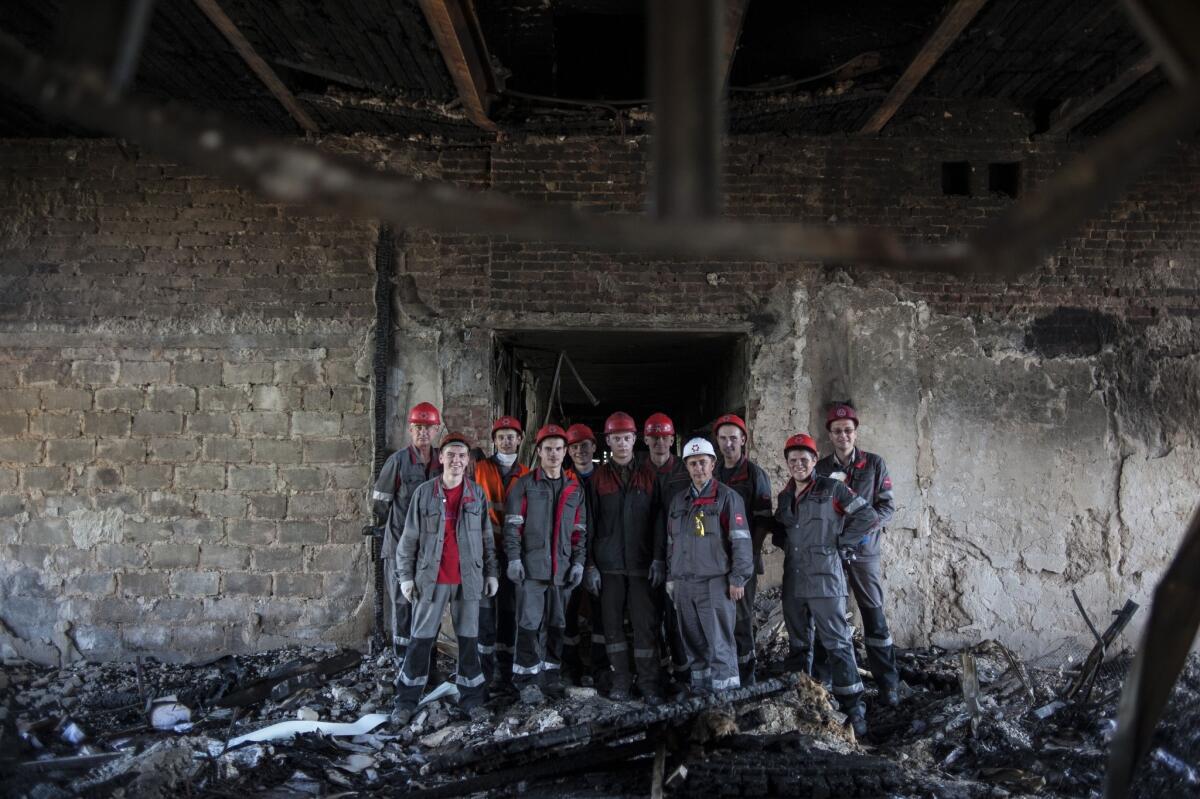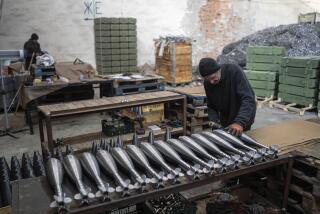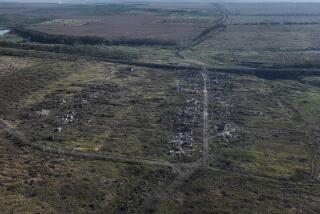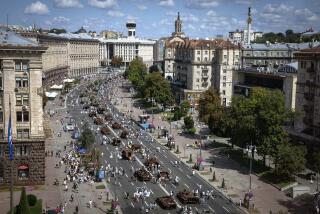2 Ukraine oligarchs speak up for unity, against pro-Russia faction

You don’t amass a billion-dollar fortune in a country infamous for corruption and inefficient industries by ignoring the political winds.
No one has more to lose from the campaign by Ukraine’s pro-Russia separatists than a handful of men who have grown rich off the mines and factories in the country’s east. They largely have been quiet during the months of unrest racking the nation, knowing that they depend on markets in Russia and that they might need to reach an accommodation with Russian President Vladimir Putin, who already has annexed Ukraine’s Crimean peninsula.
So the moves this week by two oligarchs to back the Ukrainian government against the separatists, coinciding with a cooling of rhetoric from Moscow, could prove to be a key moment in the dispute. Though some of Ukraine’s wealthiest magnates continue to sit on the fence, a strong stance by the country’s richest man in favor of a unified Ukraine might be an indication that he feels the threat of direct Russian intervention is fading.
In the port city of Mariupol this week, the unarmed steelworkers of Metinvest who appeared on the streets in their orange hard hats and company-issued gray coveralls were for many residents a welcome change from menacing pro-Russia gunmen.
The only question for many in the city of 500,000 is why it took so long for factory owners to act. Some labor leaders in the region said they had been waiting for just such a sign that the magnates would be behind them in opposing the separatists.
The steelworkers took to the streets at the behest of Metinvest magnate Rinat Akhmetov, Ukraine’s richest man, with a fortune Forbes estimates at $11 billion. Metinvest is part of Akhmetov’s System Capital Management conglomerate of more than 100 companies engaged in mining, metallurgy, energy production, telecommunications and real estate.
Thousands of off-duty employees bolstered police patrols and dismantled barricades of tires, bricks and sandbags that the separatists had erected to prevent their ouster by the government’s “anti-terrorist operation.”
The government operation has been going badly overall. Underfunded and poorly armed troops managed to recover only a few rural roadblocks and crude encampments from the separatists, who occupy more than a dozen towns and cities in the east.
In Dnipropetrovsk, another volatile area of the Russian-speaking region, billionaire Gov. Igor Kolomoisky has also put his wealth to work in defense of a united Ukraine.
The founder of the Privat Group of banking and aviation industries has offered bounties for captured separatist fighters with ties to Moscow, the Kyiv Post reported in an extensive account of a newly deployed pro-government militia known as the Donbass Battalion.
The oligarchs appear to have concluded that separatism endangers their export-dependent businesses. The reclusive Akhmetov issued a statement this week warning of economic “catastrophe” if eastern Ukraine seceded and its industries were cut off from international financing and trade institutions.
The magnates’ moves came as Russia kept its distance from the independence referendums held Sunday in the Donetsk and Luhansk regions. Though separatists appeared to have Moscow’s backing when they seized government facilities during the last two months, the Kremlin has been pointedly silent since the votes, which organizers said strongly supported self-rule if not secession from Ukraine.
Besides being a possible reading on the Kremlin’s attitude, the oligarchs’ intervention could help turn the tide of an insurrection that has so far overwhelmed Ukraine’s interim leaders and left much of the public, particularly in Europe-leaning western Ukraine, fearing renewed Russian domination 23 years after the collapse of the Soviet Union.
With the support of some of Akhmetov’s 300,000 employees, the government in Kiev may have a fighting chance of turning things around.
The leading candidate to win the Ukrainian presidency in the May 25 election is himself a rich businessman. Petro Poroshenko, who is worth an estimated $1.3 billion, made his money in the confection business. Russia has banned imports of his popular chocolates.
Some of Ukraine’s wealthiest business figures continue to sit on the fence, either out of concern that they still might need to cut deals with Russia if Ukraine is divided or because they think their business interests are better served by sticking close to Moscow.
Viktor Pinchuk, with a fortune estimated at $3.8 billion, has been silent amid the turmoil, which could negatively affect his media and pipeline interests. So has Yuri Kosuk, who made his money in poultry.
Vadim Novinsky, a Russian oligarch whose net worth is estimated at $1.9 billion, is suffering the effects of misreading the political trend. He obtained Ukrainian citizenship two years ago and won a parliamentary seat in the Crimean city of Sevastopol. He has been little heard from since the Ukrainian peninsula was annexed by Russia two months ago, and has been barred from going back to his district.
A labor leader from eastern Ukraine said workers’ worries about their jobs made them hesitant to support the separatists.
“Who will pay our pensions? What will happen to the miners if we go to Russia, where their own miners are unemployed and they have no place to sell their own coal and steel?” Mykola Volynko, the chief of a miners union, said in an interview during a visit to Kiev this week.
Volynko said separatists had been trying to enlist miners to strike and sever their relations with Kiev but that most had resisted out of fear their jobs would disappear.
Volynko complained that militants in Donetsk had blocked buses bringing the miners to their pits and that virulent propaganda being circulated by Russian media was making inroads among some of the workers.
He said he hoped the action by Akhmetov and others in support of Ukrainian unity hadn’t come too late.
“How long would these terrorists last in Russia?” Volynko asked, alluding to the suppression of dissent there. “Why would anyone want this territory taken to Russia?”
The oligarchs say the recent engagement of steelworkers, miners and others whose jobs may be at stake is intended to bring law and order to the region.
“Mr. Akhmetov is determined to do whatever is necessary to get rid of weapons and restore peace to the region and ensure [the Donbass region] remains in Ukraine,” his spokeswoman, Elena Dovzhenko, told The Times. “Mariupol is only the first operation to help bring an end to the crisis.”
More to Read
Start your day right
Sign up for Essential California for news, features and recommendations from the L.A. Times and beyond in your inbox six days a week.
You may occasionally receive promotional content from the Los Angeles Times.







